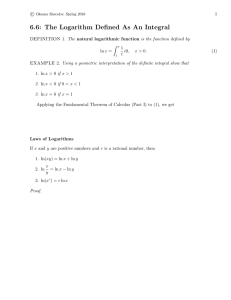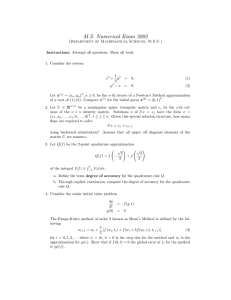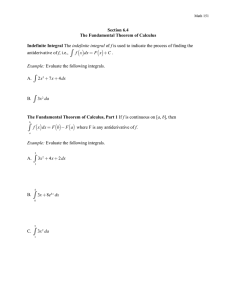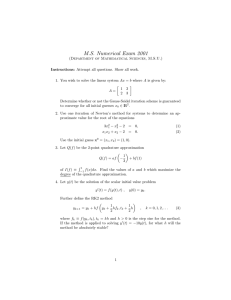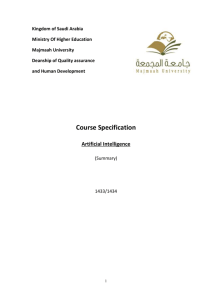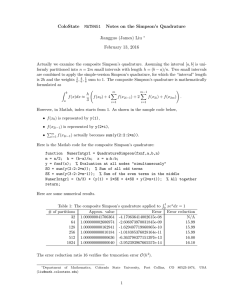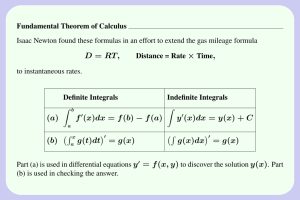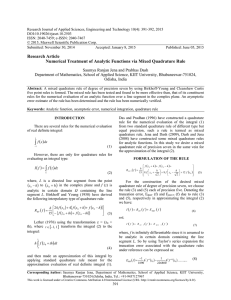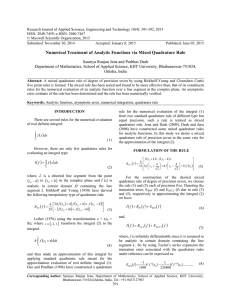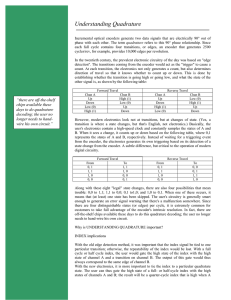Fundamental Theorem of Calculus
advertisement
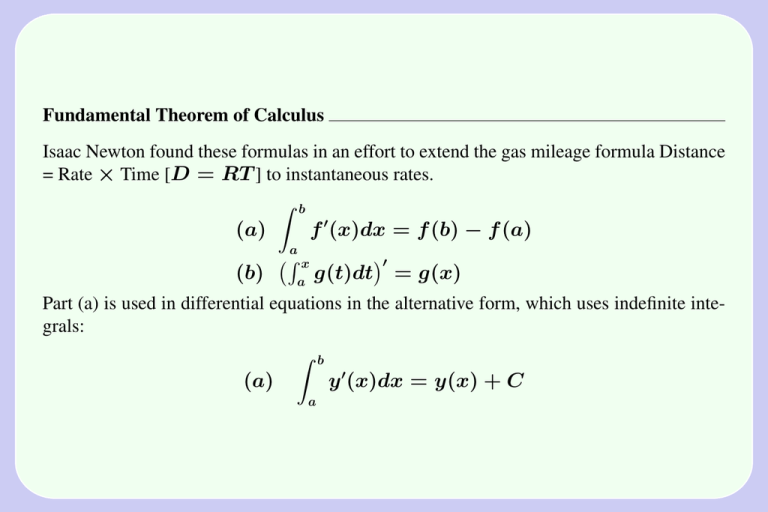
Fundamental Theorem of Calculus Isaac Newton found these formulas in an effort to extend the gas mileage formula Distance = Rate × Time [D = RT ] to instantaneous rates. Z (a) (b) b f 0(x)dx = f (b) − f (a) 0 Ra x g(t)dt = g(x) a Part (a) is used in differential equations in the alternative form, which uses indefinite integrals: b Z y 0(x)dx = y(x) + C (a) a Method of Quadrature Also called the integration method, the idea is to multiply the differential equation by dx, then write an integral sign on each side. • The method applies only to quadrature equations y 0 = F (x). • The R 0 Fundamental Theorem of Calculus is applied on the left side to evaluate y (x)dx as y(x) plus a constant. • The method finds a candidate solution y(x). It does not verify that the expression works. Example: Method of Quadrature Solve by the method of quadrature y 0 = 2x. • Multiply y 0 = 2x by dx, then write an integral sign on each side. Z Z y 0(x)dx = 2xdx • Apply the FTC R y 0(x)dx = y(x) + C on the left: Z y(x) + c1 = 2xdx • Evaluate the integral on the right by tables. Then y(x) + c1 = x2 + c2, or y(x) = x2 + C

